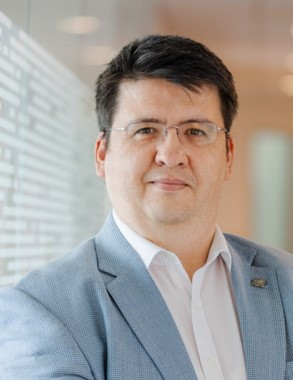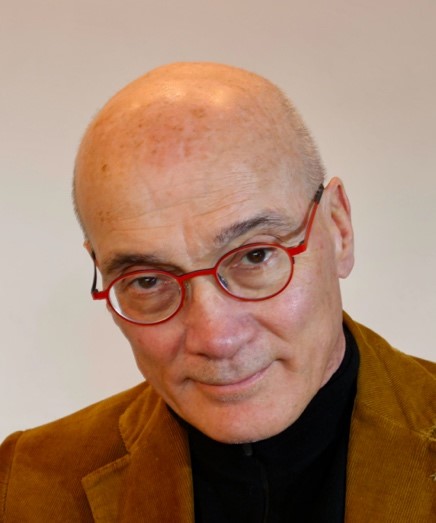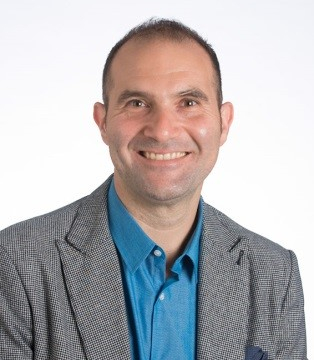KEYNOTE SPEAKERS

Introduction of IEEE Standardization Process to Scholars
Tuncer Baykas
IEEE Standards Coordinator, IEEE Region 8
ABSTRACT – With an active portfolio of nearly 1,300 standards and projects under development, IEEE is a leading developer of industry standards in a broad range of technologies that drive the functionality, capabilities, and interoperability of products and services, transforming how people live, work, and communicate. In this workshop we will cover IEEE Standards association main standardization areas, such as Communications, Networks, Electronics, Power and Energy, Mobile Computing, Cloud Computing, Industrial Applications, Artificial Intelligence, Safety, and Compliance Assessment. In addition we provide examples of how scholars from acdemia join the standardization process.
SPEAKER BIOGRAPHY – Tuncer Baykas (Senior Member, IEEE) received the Ph.D. degree in electrical engineering from the University of Ottawa, in 2007. He joined the National Institute of Information and Communications Technology, Japan, in 2007. During his tenure, he contributed to multiple standardization projects, including 802.15.3c, 802.11ad, and 1900.7. He served as the Chair for IEEE 802.19.1 coexistence in TVWS Task Group. In 2022, he joined Ofinno Inc. He is currently IEEE Standards Coordinator in Region 8, the Vice Chair of 802.19 Working Group and 802.11bb Light Communications Task Group. He has over 50 major journal and conference publications, and three U.S. and 37 Japanese patents. His research interests include THz communications, spectrum sharing, and radar signal processing. He was one of the recipients of Turkish Academy of Sciences Young Researcher Award, IEEE-SA Standards Board Award, and IEEE-SA Certificate of Appreciation. He served as a Guest Editor for IEEE Communications Magazine and a Board Member for IEEE Comsoc MMTC E-Letters.

The History Activity Committee of the IEEE Italy Section: features and activities
Massimo Guarnieri
University of Padua, Italy
ABSTRACT – The IEEE Italy Section has an articulated structure composed of chapters, committees, and affinity groups. Among them, the History Activity Committee is local corresponding of the central IEEE History Committee and the Region 8 History Activities. It is active in proposing milestones which celebrate major Italian contributions to the development of IEEE related science and technology and in publishing historical notes, which are booklets of scientific and technological interest. In addition, the HAC promotes events of historical interest and advertise on them. Two major events organized this year are the LoI with AISI, the Italian Association for the History of Engineering, and HISTELCON 2023, the 8th IEEE History of Electrotechnology Conference that will be held in Florence on 7-9 September 2023.
SPEAKER BIOGRAPHY – MD in Electrical Engineering in 1979, MBA in 1986, PhD in 1987. Full Professor in 2000.
He works in numerical and experimental research on electrochemical energy storage.
He created the Electrochemical Energy Storage and Conversion Laboratory of the University of Padua. He is/was PI of several projects funded by public and private bodies.
He promoted MoUs with the University of Tennessee (USA) and Tokyo University of Agriculture and Technology (J) and agreements with MIT (USA), Vanderbilt University (USA), Fraunhofer-ICT (Germany) and Skoltech (Russia).
He represents the University of Padua in EERA Batteries JP and chairs the Technological Committee of Flow Batteries Europe. He authored 168 scientific papers indexed in Scopus and is the inventor of seven patents. He is ranked in the World’s Top 2% Scientists by Stanford University.

Threats or resources? Distributed energy systems and power system resilience
Pierluigi Mancarella
The University of Melbourne, Australia, and The University of Manchester, UK
ABSTRACT – Distributed energy resources (DER) are becoming widespread in most countries worldwide. In particular, rooftop solar photovoltaics and battery energy storage systems (including in energy community schemes), and soon electric vehicles too, are poised to play an essential role towards power system decarbonisation and more consumer-centric markets. However, they also fundamentally challenge the traditional way power systems and markets have been operated and planned. In this regard, recent events throughout the world have highlighted how ultra-deep penetration of DER could make the grid more “fragile” and pose a threat to power system resilience. Hence, ongoing debates refer to how DER should be securely integrated into systems and markets, provide grid services, and eventually contribute to enhancing power system resilience.
In this keynote talk we will discuss fundamental techno-economic challenges and opportunities emerging in the presence of large shares of DER, with focus on their role in the context of power system resilience and the benefits that DER aggregation schemes (e.g., virtual power plants and microgrids) could bring. Several case studies from a number of recent events and projects around the world will be used to exemplify the concepts presented.
SPEAKER BIOGRAPHY – Pierluigi Mancarella is the Chair Professor of Electrical Power Systems at The University of Melbourne (Australia), where he is also the Energy Systems program leader at the Melbourne Energy Institute, and Professor of Smart Energy Systems at The University of Manchester (UK). His key research interests include techno-economic modelling and analysis of multi-energy systems, grid and market integration of renewables and distributed energy resources, energy infrastructure planning under uncertainty, and security, reliability and resilience of low-carbon networks.
Pierluigi is a Fellow of the IEEE, an IEEE Power and Energy Society Distinguished Lecturer, and the Convenor of the Cigre C6/C2.34 Working Group on “Flexibility provision from distributed energy resources”. He holds the 2017 veski Innovation Fellowship for his work on urban-scale virtual power plants, is a recipient of an international Newton Prize 2018 for his work on power system resilience in Chile, and was the technical chair of the 2022 International Microgrids Symposium and the inaugural chair of the Energy working group of the IEEE European Public Policy Initiative. He has been visiting researcher/professor in a number of international institutions, including NREL in Colorado, Tsinghua University in China, Ecole Centrale de Lille in France, and the Universidad de Chile.
Pierluigi is author of several books and over 400 research papers and reports, and is an Editor of the IEEE Transactions on Power Systems, the IEEE Transactions on Energy Markets, Policy and Regulation, and the Oxford Open Energy journal.
Currently he is actively involved in a number of research and consultancy projects with industry and policy makers in Australia and internationally, particularly in the areas of integrated planning of electricity-hydrogen infrastructure, development of distributed energy markets, and reliable and resilient planning of future energy systems.

